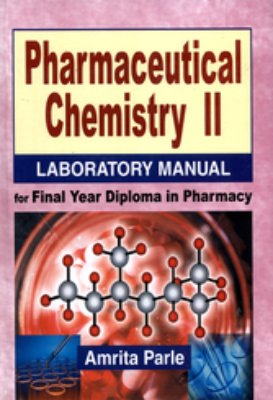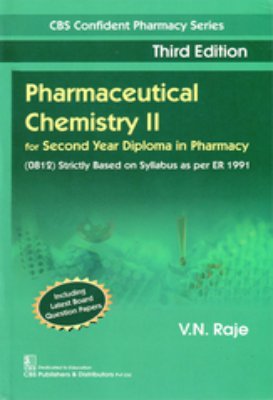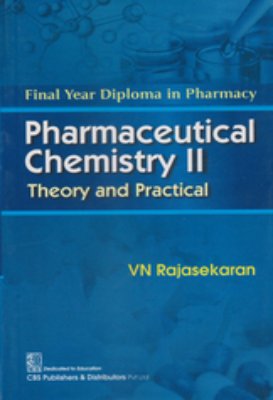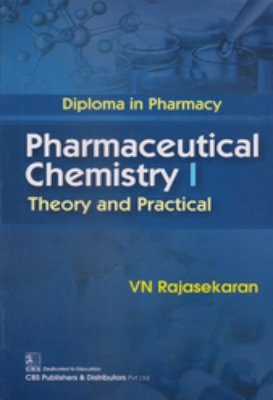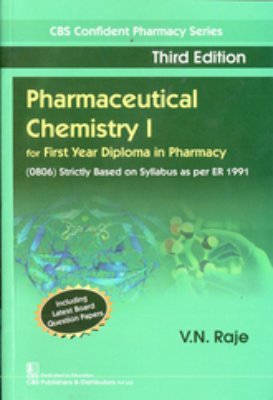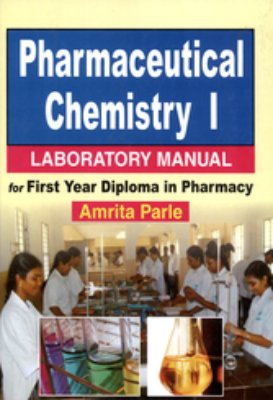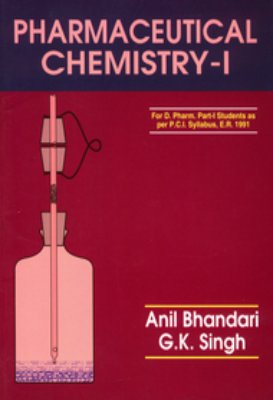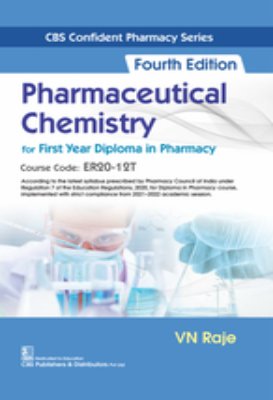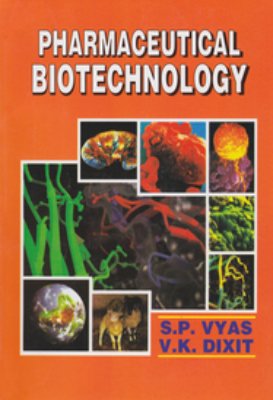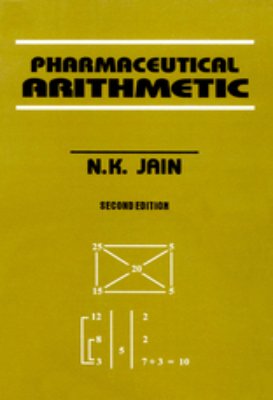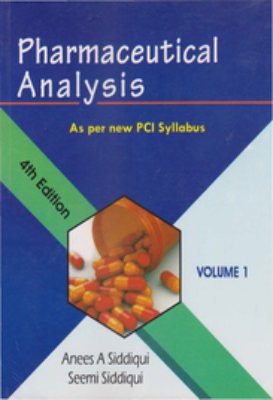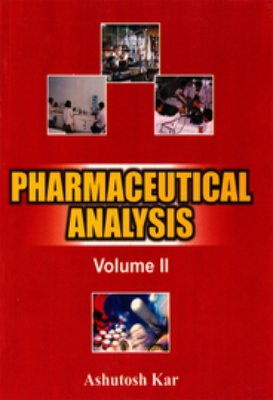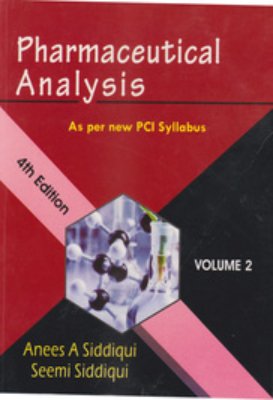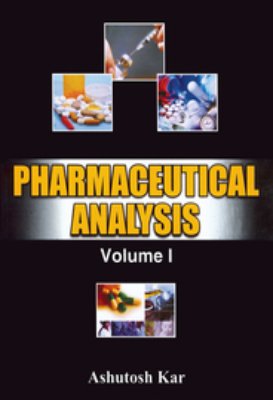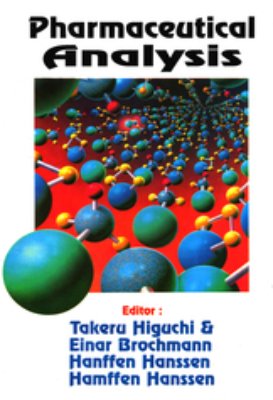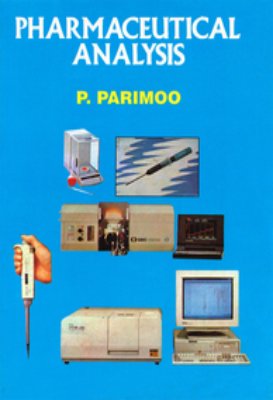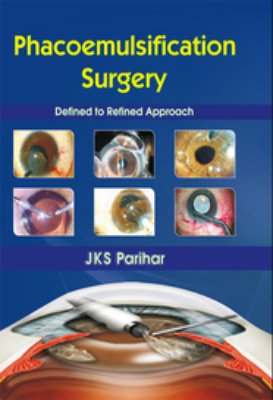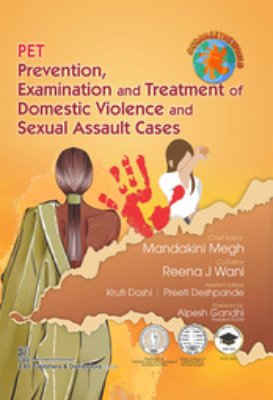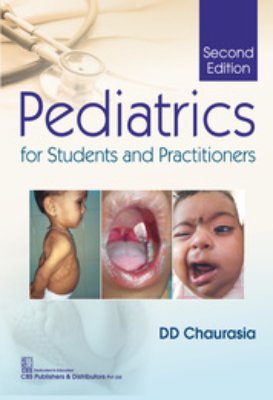Pharmaceutical Chemistry II: Laboratory Manual for Final Year Diploma in Pharmacy
It covers all the practical aspects of the subject Pharmaceutical Chemistry II in detail as per the syllabus prescribed by PCI under Education Regulation 1991 for Final Year Diploma in Pharmacy students. It also covers some additional experiments relevant to develop desirable practical skills in them.The text is divided topic-wise into five parts. Part I covers the elemental detection for nitrogen sulphur and halides. Part II covers functional group detection for carboxylic acids alcohols phenols aldehydes ketones esters amides amines nitro group and hydrocarbons. Some experiments for determining the extra elements and functional groups in unknown samples are also added. Part III covers the identification of compounds/drugs/dosage form. Part IV covers synthesis separation and purification of drugs and organic compounds. Part V covers the experiments concerning the determination of the melting point and boiling point. This Manual is expected to clear the theoretical concepts behind each experiment of Pharmaceutical Chemistry II. This would save a valuable time for the students in writing the records which in turn could be ideally utilised by the students in learning and understanding the subject better.
Pharmaceutical Chemistry II, 3e
Pharmaceutical Chemistry II, 3e CBS Confident Pharmacy Series Pharmaceutical Chemistry II, 3/e For Second Year Diploma in Pharmacy (0805) Strictly Based on Syllabus as per ER 1991. The third edition of the now popular and successful book includes Board Question Papers 2010 to 2017.The book is written,presented and published to meet the requirements of students of diploma in pharmacy (D Pharm) in accordance with the new revised syllabus under ER 1991 of Pharmacy Council of India. Written in a lucid and simple language, it attempts to demystify and simplify the basic concepts for the students of pharmacy for proper understanding of the subject and to get a sure success in the state board examinations. The salient features of the present book are: Topics described in easy language To the point answers Shows the way to attempt board examinations in the simplest way The series, comprising six books each for the first year and second year diploma students, is aptly named CBS Confident Pharmacy Series as each volume is designed to inspire self-confidence in the reader. This book, as well as the entire series, will be useful not only to both the students and the teachers of diploma in pharmacy, but also the candidates desiring to attempt competitive examinations for job opportunities in pharmacy profession such as hospital pharmacist (PHC, Civil Hospital, etc.). V. N. Raje is currently Principal, Gourishankar Education Society?s (GES) College of Pharmacy (D Pharm),Limb,Satara,Maharashtra. He has over 26 years of experience in teaching to diploma in pharmacy level students. He has excellent track record in various academic institutes of high repute and is actively engaged in teaching, administration and service to the profession. He has contributed to social awareness programmes by counselling and guiding through radio programmes and motivating the students regarding the career opportunities in pharmacy profession.He has put in extensive effort in compiling this series comprising 12 titles, 6 each for first year and second year diploma in pharmacy students.
Pharmaceutical Chemistry II
The book discusses the chemistry of important pharmaceutical organic compounds, covering their nomenclature, chemical structure, uses, and physical and chemical properties. It also includes stability and storage conditions, official pharmaceutical preparations, and brand names of important drugs. The book is divided into two sections. The sections emphasize on both the theoretical and practical aspects of the drugs. The entire text is covered in 36 chapters, and each chapter covers all the topics in a cogent and lucid style to help the reader grasp the information quickly and easily. The book is a complete treatise on pharmaceutical drugs. It is an essential reading for students and teachers of diploma in pharmacy. It caters to the requirement of the ER 1991 syllabus. The intended readers will find it highly useful and informative.
Pharmaceutical Chemistry I Theory and Practical
It deals with the study of inorganic drugs based on pharmacological classification. It also lays emphasis on the chemistry as a knowledge of the chemical properties, which will help the reader in understanding the rationale behind the tests for identity and also the storage conditions. The text conforms to the syllabus prescribed for Pharmaceutical Chemistry I under ER 91. This edition is divided into two sections - A and B. Section A discusses the theory: Various properties and uses of inorganic compounds, Major intra- and extracellular electrolytes, Radiopharmaceuticals and contrast media, Inorganic official compounds of iron, iodine and calcium, Quality control of drugs and pharmaceuticals, Identification tests for cations and anions as per Indian Pharmacopoeia. Section B covers practical tests. The book will serve as a useful text for the students at the diploma level in pharmacy as it covers all the topics and bare essentials required under the syllabus.
Pharmaceutical Chemistry I
Pharmaceutical Chemistry I for First Year Diploma in Pharmacy (0805) Strictly Based on Syllabus as per ER 1991. The third edition of the now popular and successful book includes Board Question Papers 2010 to 2017.The book is written,presented and published to meet the requirements of students of diploma in pharmacy (D Pharm) in accordance with the new revised syllabus under ER 1991 of Pharmacy Council of India. Written in a lucid and simple language, it attempts to demystify and simplify the basic concepts for the students of pharmacy for proper understanding of the subject and to get a sure success in the state board examinations.
Pharmaceutical Chemistry I
This book has primarily been written with a view to meeting the needs and interest of the Diploma in Pharmacy Part-I student to cover the syllabus of Pharmaceutical Chemistry 1.This book has been divided into six chapters to suit the P.CI. Syllabus. The book contains important tests for purity given in Indian Pharmacopoeia 1996, assays, preparations and chemical properties of certain compounds, The appendix covers certain definitions and medical terms which may be of helpful to the students.
Pharmaceutical Biotechnology
During the past 20 years, biotechnology and ceil molecular biology have developed and emerged Into a major discipline not only of theoretical importance, but also of equally practical potentials. Uniting basic science disciplines like biochemistry, cell biology, biophysics, process engineering, medicine and pharmacy, it has emerged as a significant discipline now recognized as pharmaceutical biotechnology. The emanations of this discipline have made significant impact on downstream processing of biologicals and other novel molecules, and opened up numerous vistas of possibilities and promises at the Other.
Pharmaceutical Arithmetic
Pharmaceutical arithmetic continues to be an important topic in pharmaceutical sciences. The first edition of this book was envisaged because of the paucity of simple precise and economic books in the field which was surprising to some extent. A strong basis of arithmetic makes a good foundation for a pharmacist in any walk of his profession. All the chapters have been thoroughly revised and expanded.
Pharmaceutical Analysis Volume II
Pharmaceutical Analysis (Volume ll) is an integral companion of Pharmaceutical Analysis (Volume l) which essentially encompases certain highly developed and sophisticated methods of analysis dealing exclusively with an ever expanding generic discipline. As to date the strengths of pharmaceutical analysis attained overwhelmingly not only a phenomenal growth but also a qualified success in the realms of development of new drug molecules, bulk drugs, intermediates, stability studies, and evaluation of secondary pharmaceutical products viz., tablets, capsules, eye-drops, suspensions, liquid formulations, parenterals, and ready-to-use drug filled injectable syringes.
Pharmaceutical Analysis
This volume is the result of a combined effort to fill the gap that has long existed in the field of pharmaceutical and analytical literature. In devising specific methods that are suitable for accurately determining small amounts of potent drugs in bulk and dosage forms, particularly in the presence of their degradation products and/or interfering drugs and excipients, analytical research workers have relied largely upon personal experience and ingenuity.
Pharmaceutical Analysis
This text book an effort has been made to unify and select material that would satisfy differing needs and at the same time keep the book to a reasonable size. The subject material has been arranged in the form of various sections to include variety of techniques that are available under chemical physico-chemical and instrumental methods and in the process the book will also serve the purpose of advanced students at M-Pharm and Ph.D. level. Section 1 comprises the classical methods of analysis which are meant for the I st year level syllabus in Pharmaceutical analysis.
Phacoemulsification Surgery: Defined to Refined Approach
Phacoemulsification Surgery: Defined to Refined Approach, Surgical management of cataract has completely revolved from mere removal of cataract by ICCE to full range spectacle-free visual outcome by phacoemulsification surgery with the implantation of latest generation multifocal or accommodative IOL implants. Keeping this view in consideration, this book is planned to provide useful practical tips of surgical technique and comprehensive platform coupled with inherent flavour of theoretical concepts to the readers, particularly to the young ophthalmologists, postgraduate students and postdoctoral fellows. Chapters on latest designs of accommodative IOL implants as well as on advanced phacoemulsifier machines have been incorporated to maintain the pace with the rapid advancements in the subject. The book also provides knowledge on the concurrent surgical procedures in which phacoemulsification surgery is clubbed with other surgical procedures like trabeculectomy, glaucoma valve, corneal transplant and VR surgery as well. An exhaustive and analytical approach to cataract associated with other complex ocular problems like congenital anomalies, traumatic subluxated cataract, ARMD, postuveitic and postrefractive surgery status is suitably provided a special place in the text. Illustrations of rare complications like opacification of acrylic IOL implant will definitely be an interesting topic for newer generation of phacosurgeons. This book provides many nuggets of advice and information that the readers would be hard pressed to find.
PET: Prevention, Examination and Treatment of Domestic Violence and Sexual Assault Cases
The training workshop on PET (prevention examination and treatment) of domestic violence and sexual assault by ICOG-FOGSI was conceptualized by us to attempt to plug the gaps in knowledge and improve practices in dealing with violence against women and girls. The book was born out of the effort to collate all the information in concise form which can be referred to by each of you in times of doubt. With the help of this, health professionals can use the guidelines as a day-to-day service document and/or as a tool to guide the development of health services for victims of sexual violence. This can also be used to prepare in-service training courses on sexual violence for health care practitioners and other members of multidisciplinary teams. Our team has made best efforts to collect up-to-date information from global and local experts and prepared a document you must keep as a ready reckoner in your clinics and libraries.
Pediatrics for Students and Practitioners, 2e
Pediatrics for Students and Practitioners Second Edition provides simple and systemized yet complete information on pediatrics for undergraduate medical students as ws practising clinicians. This book adequately cov important topics such as clinical methods in pediatrics, neonatology, ?infant feeding, growth and development, ?disorders of infancy, childhood and adolescence, practical procedures, and ?drug dosages in children with trade names and preparations.
Many new topics have been added in this edition. All topics have been thoroughly revised and updated with recent authentic information, new line and photographic illustrations, tables and charts for easy understanding of the subject.


